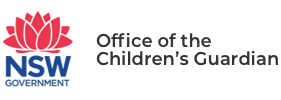Religious bodies and the Reportable Conduct Scheme, including information sharing and mandatory reporting.
Religious bodies have been included in the Reportable Conduct Scheme under the Children’s Guardian Act 2019 since March 2020.
- How the Act defines religious bodies, and the type of reports religious bodies need to make to us
- What religious organisation need to do under scheme
Religious bodies also come under the Child Safe Scheme which began in February 2022.
Religious bodies and mandatory reporting
The Department of Communities and Justice (DCJ) administers the Children and Young Persons (Care and Protection) Act 1998 (Care and Protection Act), and its Regulation. This legislation defines who is a ‘mandatory reporter’ in NSW.
Mandatory reporters are legally required to make a report to DCJ when they have ‘reasonable grounds to suspect that a child is at risk of significant harm' (and those grounds arise during or because of their work or role).
Since March 2020, the definition of ‘mandatory reporter’ includes people 'in religious ministry or a person providing religion-based activities to children’.
DCJ provides examples of the types of roles captured by the term ‘religious ministry’, and they include: minister of religion, priest, deacon, pastor, rabbi, Salvation Army Officer, church elder, religious brother or sister. If you don’t know if your role could be described as religious ministry, please contact DCJ for advice.
Mandatory reporters are protected from liability for defamation, and civil and criminal liability. They are also legally protected against retribution for making or proposing to make a report.
You’re not being disloyal to your organisation, colleague, client or member of your religious body if you make a report. In fact, not making a mandatory report could be professional misconduct, a breach of professional and ethical codes, and sometimes even a criminal offence.
Mandatory reporters can make their report to the NSW Child Protection Helpline on 132 111. The helpline is open 24 hours a day, 7 days a week.
More information about mandatory reporting
If you make a mandatory report as part of your response to a reportable allegation, you still need to meet your obligations under the Reportable Conduct Scheme.
Religious bodies and Chapter 16A
Chapter 16A of the Care and Protection Act allows certain types of organisations – which it calls ‘prescribed bodies’ – to exchange information about the safety, welfare or wellbeing of children, even if other laws would normally ban or restrict the disclosure of personal and private information. The Care and Protection Act defines what is a prescribed body, and its Regulation adds more organisations and individuals to the list.
The DCJ website has details about information sharing under Chapter 16A.
It explains the background to Chapter 16A, the legal framework, and how prescribed bodies should share information. It’s important that religious bodies know what Chapter 16A says about restrictions on how the information can be used and the need to keep the information confidential.
Using Chapter 16A in connection with reportable conduct matters
Religious bodies may ask for information from other prescribed bodies under Chapter 16A if the religious body:
- is making a decision, assessment or plan for a child (or class of children), in response to concerns about an employee or volunteer who works with children within the religious body, which are or may be reportable allegations
- is investigating a reportable allegation against an employee or volunteer who works with children within the religious body, or
- is otherwise managing risk involving a child (or class of children) arising in the religious body’s capacity as an employer (including engagement of a volunteer) to work with children, and
- reasonably believes that the information requested can assist to fulfill these obligations.
DCJ has useful templates you can rebrand and use in your organisation.
Requesting information from another prescribed body
To request relevant information from another prescribed body under Chapter 16A, religious bodies must:
- identify a child (or class of children) whose safety, welfare or wellbeing is in issue
- explain the reasons why they are requesting the information, showing they have met the criteria for exchanging information (as above)
- provide the name and date of birth of the relevant employee or volunteer
- outline the type and nature of information they are requesting.
Refusal to provide information
Sometimes prescribed bodies are not required to provide information set out in Chapter 16A. This is outlined in sections 245(D)(4) and 245(L) of the Care and Protection Act. When this happens, the prescribed body must let you know in writing the reasons for their decision not to provide you with the information you are requesting.
Difficulties getting information
Chapter 16A does not name ‘religious bodies’ as one of the organisations under its definition of a prescribed body. So, when religious bodies make a Chapter 16A request (within the limits detailed in this section and in connection with your reportable conduct obligations), the prescribed body might not know that you’re entitled to the information. In this case, please direct the prescribed body to this web page to confirm the provision.
If you’re fulfilling your reportable conduct obligations and you continue to have trouble getting information from a prescribed body, we may be able to help.
Please contact the case officer working on the matter or email reportableconduct@ocg.nsw.gov.au


